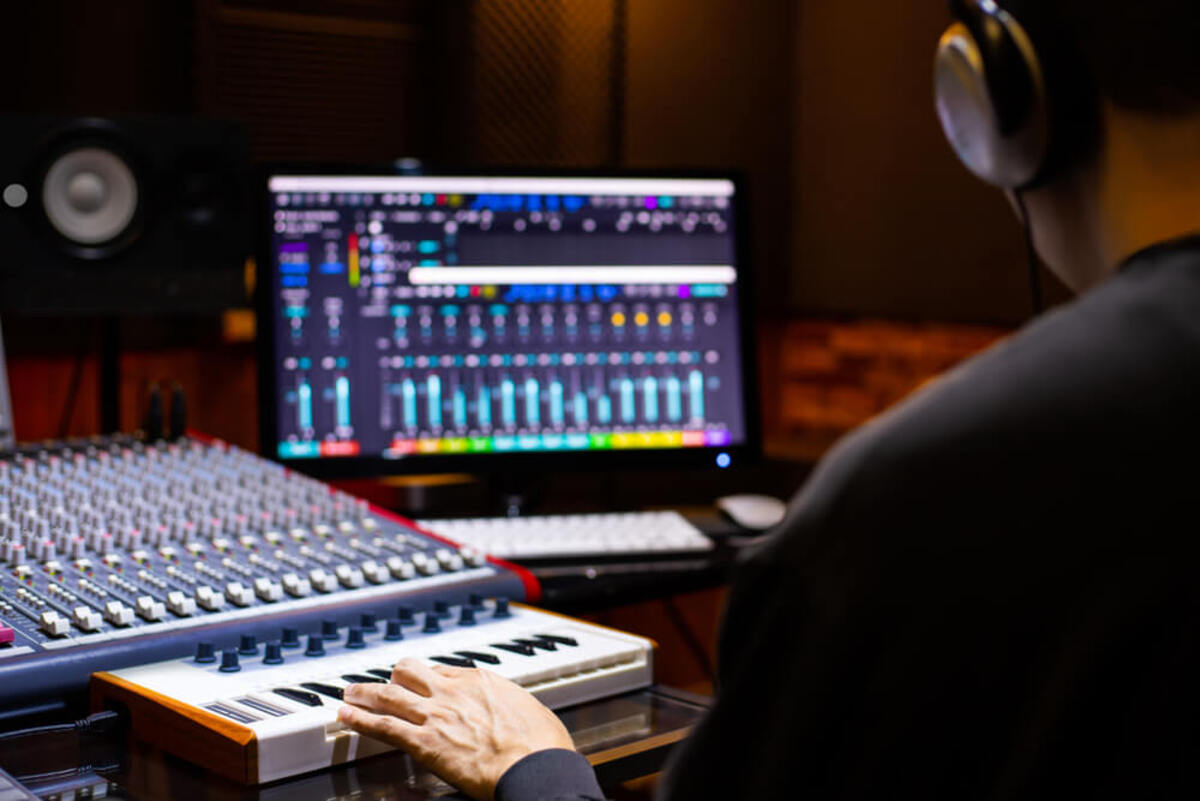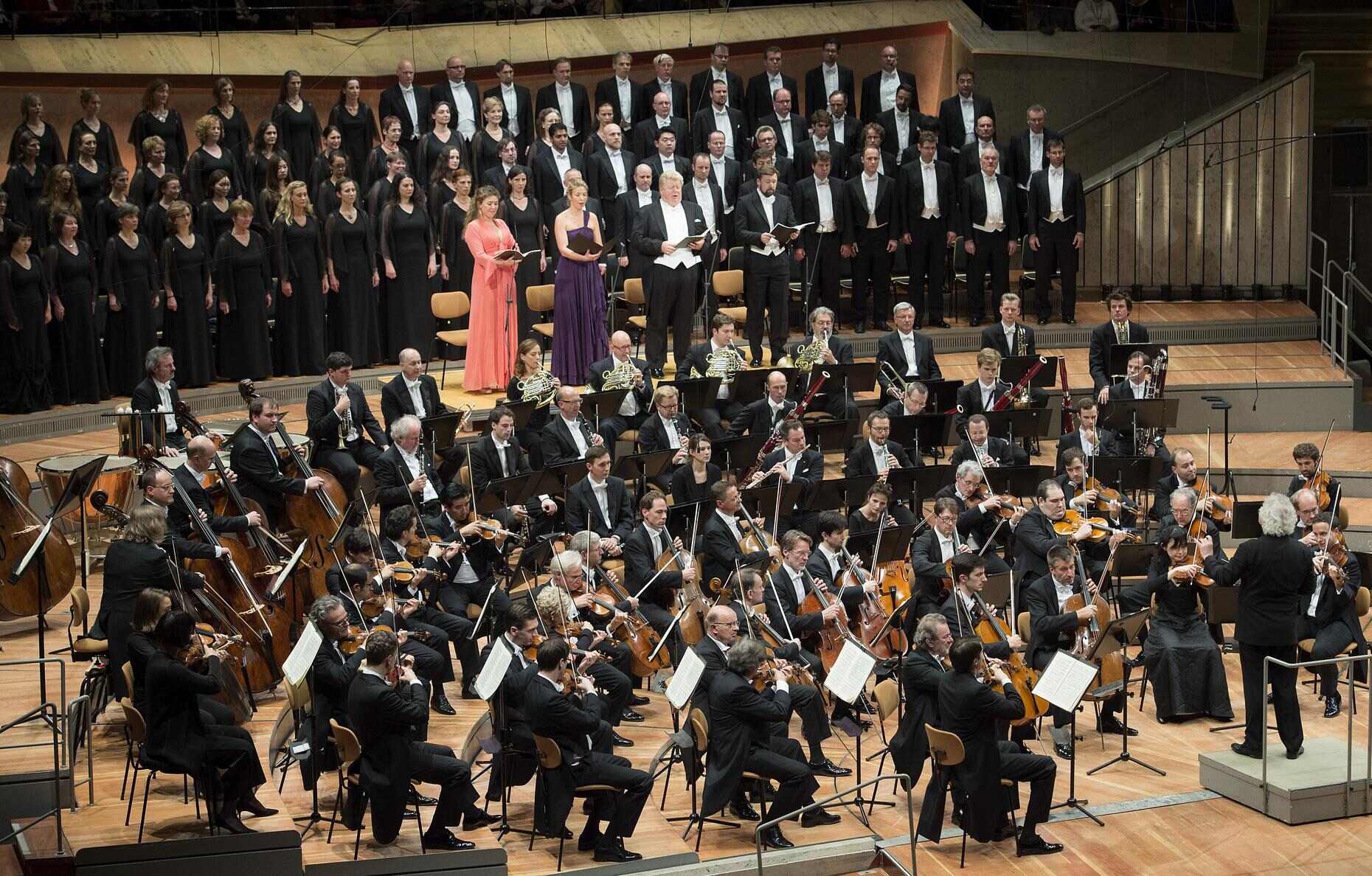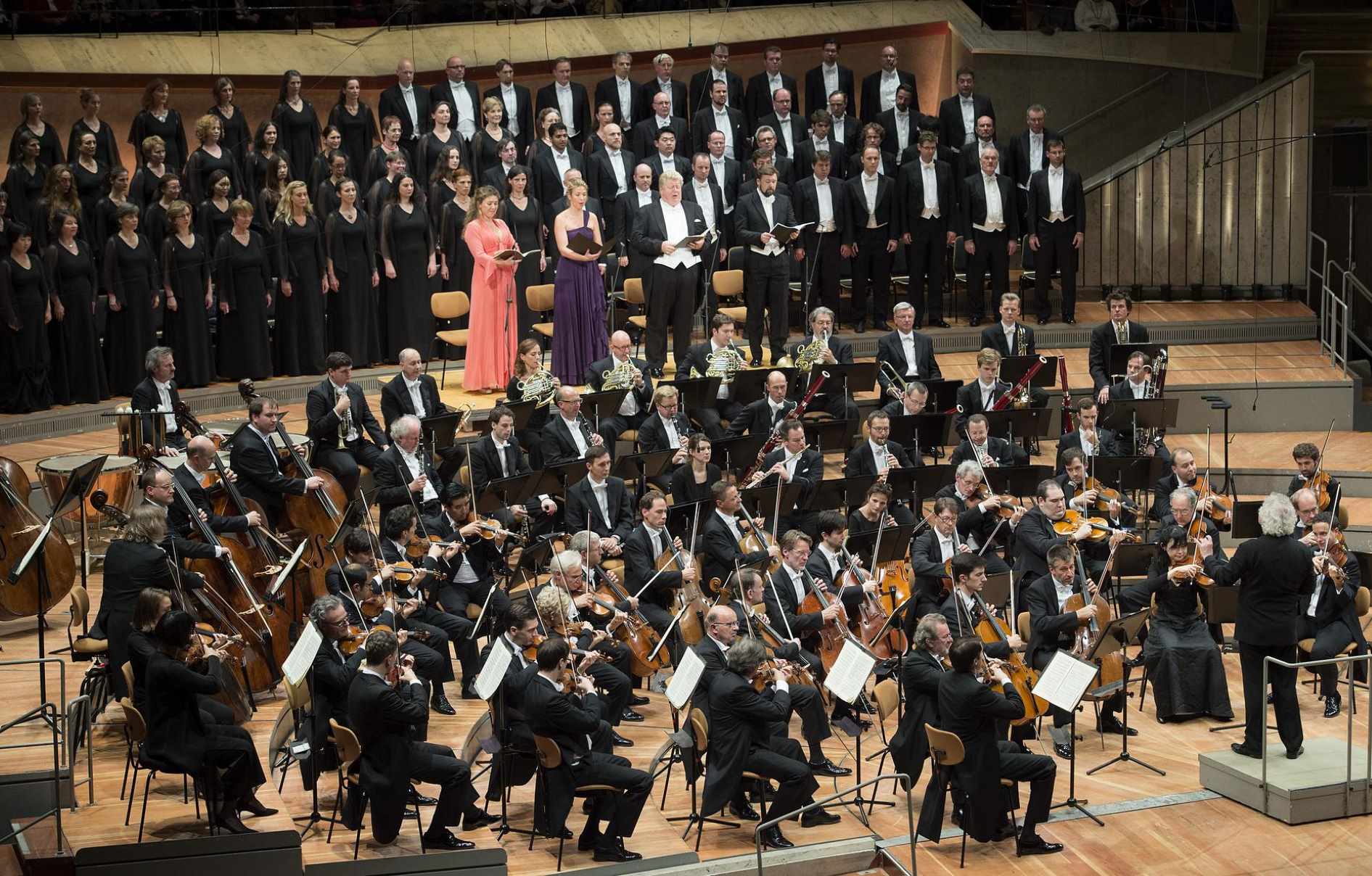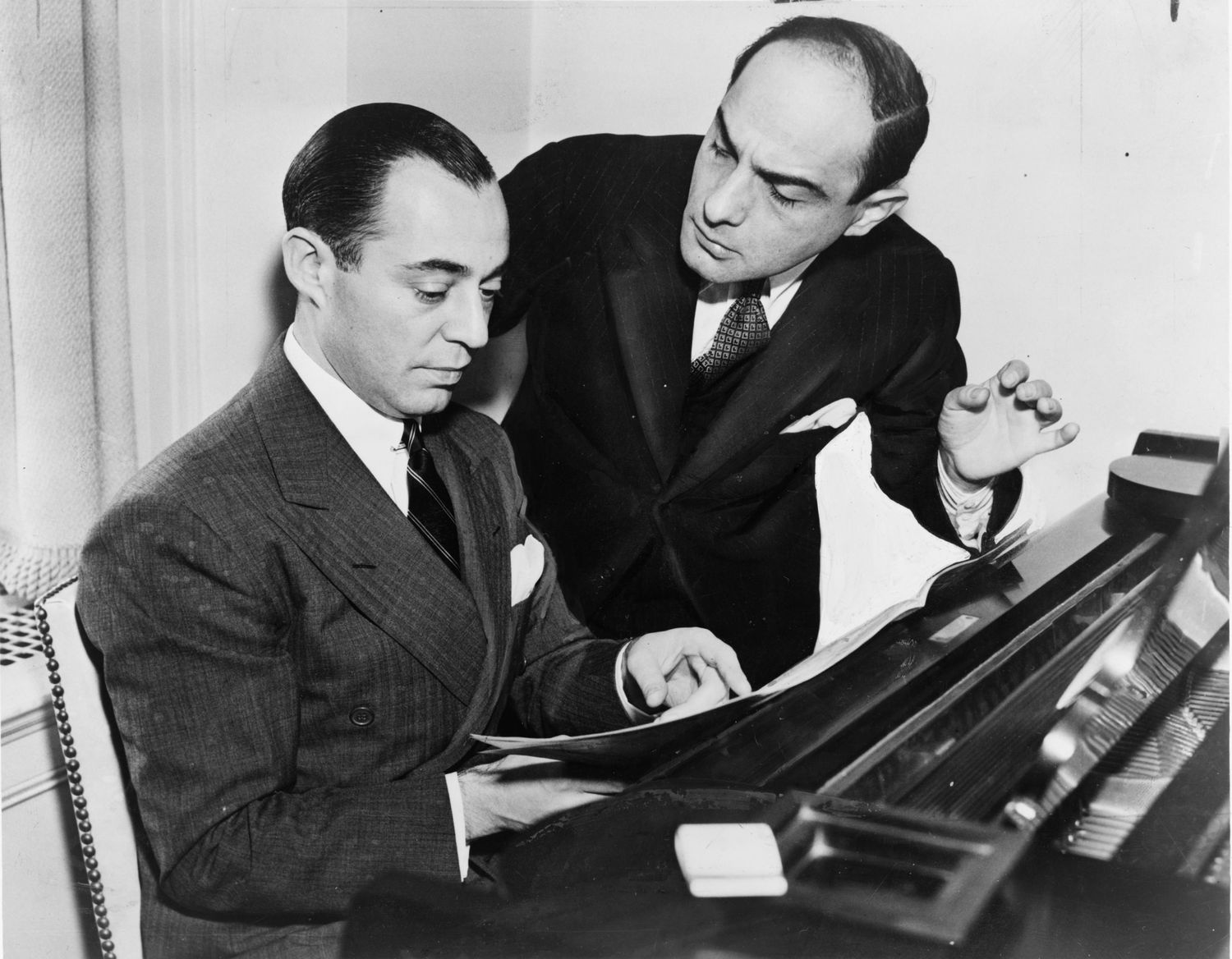Home>Production & Technology>Producer>What Is The Difference Between A Music Producer And An Engineer


Producer
What Is The Difference Between A Music Producer And An Engineer
Published: March 6, 2024
Discover the key disparities between a music producer and an engineer, and understand their respective roles in the music production process. Learn how a producer influences the creative direction and a sound engineer focuses on technical aspects. Gain insights into the unique contributions of each role in shaping the final musical product.
(Many of the links in this article redirect to a specific reviewed product. Your purchase of these products through affiliate links helps to generate commission for AudioLover.com, at no extra cost. Learn more)
Table of Contents
Introduction
In the realm of music production, two key roles often stand out: the music producer and the music engineer. While both are integral to the creation of captivating and high-quality music, their responsibilities and areas of expertise differ significantly. Understanding the distinctions between these roles is crucial for anyone aspiring to venture into the music industry or simply seeking to comprehend the intricacies of music production.
The music producer and the music engineer each bring unique skill sets and perspectives to the table, contributing to the overall sound and feel of a musical piece. By delving into the specific responsibilities and differences between these roles, we can gain a deeper appreciation for the collaborative efforts that underpin the creation of our favorite tunes.
Let's embark on a journey to explore the multifaceted world of music production, shedding light on the distinct contributions of both the music producer and the music engineer. By the end of this exploration, you will have gained valuable insights into the intricacies of music production and the distinctive roles that shape the sonic landscapes we all love.
Responsibilities of a Music Producer
A music producer is akin to a visionary architect, responsible for shaping the overall sound and direction of a musical project. Their role extends far beyond the confines of a traditional studio, encompassing a diverse array of tasks that are pivotal to the creation of a compelling musical piece. Here are the key responsibilities that define the role of a music producer:
-
Conceptualizing the Sound: The music producer serves as the creative linchpin, working closely with artists to conceptualize the sonic landscape of a song or album. This involves translating the artist's vision into a tangible musical identity, often through brainstorming sessions and in-depth discussions about the desired mood, instrumentation, and overall vibe.
-
Overseeing Pre-Production: Before the recording process commences, the music producer is deeply involved in pre-production activities. This includes refining song arrangements, selecting suitable musical elements, and ensuring that the necessary groundwork is laid for a seamless recording process.
-
Guiding the Recording Process: During recording sessions, the music producer assumes the role of a mentor, guiding the artists and session musicians to deliver performances that align with the project's overarching vision. They provide constructive feedback, suggest creative ideas, and maintain an environment conducive to artistic expression.
-
Arrangement and Composition: Music producers often contribute to the arrangement and composition of songs, leveraging their musical expertise to enhance the overall structure and flow. This may involve making critical decisions about instrumentation, vocal harmonies, and the placement of musical elements within a track.
-
Utilizing Studio Technology: A proficient music producer possesses a deep understanding of studio technology, utilizing it to sculpt and refine the sonic characteristics of a recording. This may involve employing effects, mixing techniques, and innovative production methods to achieve the desired sonic aesthetic.
-
Post-Production and Mixing: Following the recording phase, the music producer engages in post-production activities, collaborating with mixing engineers to ensure that the recorded tracks are artfully blended into a cohesive and captivating sonic tapestry.
-
Facilitating Artistic Growth: Beyond the technical aspects, music producers often serve as mentors, nurturing the artistic growth of the artists they collaborate with. They offer guidance, support, and constructive criticism, fostering an environment that encourages creative exploration and development.
In essence, the role of a music producer transcends technical proficiency, encompassing a profound understanding of musical dynamics, creative vision, and the ability to inspire and elevate the artistic endeavors of those they collaborate with. Their multifaceted responsibilities culminate in the realization of musical masterpieces that resonate with audiences on a profound level.
Responsibilities of a Music Engineer
A music engineer, often referred to as an audio engineer, is a pivotal figure in the realm of music production, wielding technical prowess and a keen ear to sculpt the sonic landscape of a recording. Their role encompasses a diverse array of responsibilities that are instrumental in capturing, refining, and enhancing the musical performances of artists. Here are the key responsibilities that define the role of a music engineer:
-
Recording and Sound Capture: One of the primary responsibilities of a music engineer is to oversee the recording process, ensuring that each musical element is captured with utmost clarity and fidelity. This involves setting up microphones, configuring recording equipment, and employing acoustic principles to achieve optimal sound capture.
-
Technical Proficiency: A music engineer possesses a deep understanding of recording equipment, digital audio workstations (DAWs), and signal processing tools. Their technical proficiency enables them to navigate complex studio setups, troubleshoot technical issues, and harness the full potential of recording gear to achieve exceptional sonic results.
-
Mixing and Signal Processing: Following the recording phase, the music engineer delves into the realm of mixing, where individual tracks are artfully blended to create a cohesive and balanced sonic canvas. This involves adjusting levels, applying equalization, implementing dynamic processing, and integrating effects to enhance the overall sonic character of the music.
-
Mastering: In the realm of music production, mastering is a crucial stage that elevates the final mix to its fullest sonic potential. Music engineers are often involved in the mastering process, employing specialized tools and techniques to refine the overall tonal balance, dynamic range, and spatial characteristics of a recording.
-
Acoustic Considerations: A proficient music engineer possesses a keen understanding of acoustic principles, leveraging this knowledge to optimize the sonic environment within a recording space. This may involve implementing acoustic treatment, positioning studio monitors for optimal sound reproduction, and mitigating acoustic anomalies that could compromise the fidelity of recorded music.
-
Collaboration and Communication: Music engineers frequently collaborate with artists, producers, and fellow engineers, necessitating effective communication and a collaborative mindset. They translate artistic visions into technical reality, adapt to the creative preferences of collaborators, and contribute their expertise to collectively elevate the sonic quality of a musical project.
In essence, the role of a music engineer is characterized by a harmonious blend of technical acumen, artistic sensibility, and a relentless pursuit of sonic excellence. Their contributions are indispensable in shaping the sonic identity of musical compositions, ensuring that the emotive essence of the music is authentically preserved and artfully presented to audiences worldwide.
Key Differences between a Music Producer and Engineer
The distinctions between a music producer and a music engineer are fundamental to understanding the dynamic landscape of music production. While both roles intersect within the realm of studio recording, their core responsibilities and areas of expertise diverge significantly. Here are the key differences that delineate the roles of a music producer and a music engineer:
-
Creative Vision vs. Technical Prowess: At its essence, the role of a music producer revolves around shaping the artistic vision of a musical project. Producers are deeply involved in conceptualizing the sound, refining song arrangements, and guiding the artistic direction. Conversely, a music engineer's focus lies in technical proficiency, encompassing sound capture, mixing, mastering, and the seamless operation of recording equipment.
-
Artistic Guidance vs. Sonic Sculpting: Music producers serve as artistic mentors, nurturing the creative growth of artists and contributing to the musical composition and arrangement. Their influence extends beyond the technical aspects, encompassing the overarching feel and emotional resonance of a musical piece. In contrast, music engineers are primarily engaged in sonic sculpting, leveraging their technical expertise to capture, refine, and enhance the sonic characteristics of recorded music.
-
Holistic Vision vs. Technical Execution: A music producer's role is characterized by a holistic vision that spans the entire creative process, from conceptualization to post-production. They oversee the artistic evolution of a project, ensuring that it aligns with the intended sonic identity. On the other hand, music engineers are focused on the technical execution of a project, meticulously handling recording equipment, signal processing, and the intricacies of sound reinforcement.
-
Artistic Collaboration vs. Technical Collaboration: Music producers collaborate with artists to actualize their creative vision, engaging in artistic dialogue and contributing to the emotive fabric of the music. Their collaborative efforts extend to shaping the sonic palette and overall artistic direction. In contrast, music engineers engage in technical collaboration, working closely with artists and producers to translate artistic aspirations into technical reality, ensuring that the sonic landscape aligns with the artistic intent.
In essence, the key differences between a music producer and a music engineer underscore the complementary yet distinct roles they embody within the realm of music production. While the producer's focus revolves around artistic vision, creative guidance, and holistic project management, the music engineer's expertise lies in technical prowess, sonic refinement, and the seamless execution of recording and mixing processes. Together, these roles converge to shape the sonic fabric of musical compositions, uniting artistic expression with technical excellence to produce captivating and emotionally resonant music.
Conclusion
In the intricate tapestry of music production, the roles of the music producer and the music engineer stand as pillars of creative and technical expertise. The journey we've embarked upon has unveiled the multifaceted responsibilities that define these roles, illuminating the distinctive contributions they make to the sonic landscapes we cherish.
The music producer, as a visionary architect of sound, encapsulates the essence of creative vision, artistic guidance, and holistic project management. Their influence permeates every facet of the music production process, from conceptualization and pre-production to guiding recording sessions and nurturing the artistic growth of collaborators. With a profound understanding of musical dynamics and a relentless pursuit of sonic excellence, music producers breathe life into artistic visions, shaping the emotive essence of musical compositions.
Conversely, the music engineer, wielding technical prowess and a keen ear, embarks on a sonic journey characterized by sound capture, technical proficiency, and the artful refinement of recorded music. Their expertise spans the realms of recording, mixing, mastering, and acoustic optimization, ensuring that the sonic fabric of a recording resonates with clarity, balance, and emotive depth. Through effective collaboration and a relentless pursuit of sonic excellence, music engineers elevate the sonic quality of musical compositions, preserving the emotive essence of the music with unwavering precision.
The key differences between a music producer and a music engineer, as elucidated in our exploration, underscore the harmonious convergence of creative vision and technical execution within the realm of music production. While the producer's focus revolves around artistic vision, creative guidance, and holistic project management, the music engineer's expertise lies in technical prowess, sonic refinement, and the seamless execution of recording and mixing processes. Together, these roles coalesce to shape the sonic fabric of musical compositions, uniting artistic expression with technical excellence to produce captivating and emotionally resonant music.
As we conclude this exploration, it becomes evident that the collaborative synergy between music producers and engineers serves as the bedrock of captivating and high-quality music. Their collective efforts, driven by a shared passion for artistic expression and sonic innovation, culminate in the timeless musical masterpieces that resonate with audiences on a profound level. It is through their unwavering dedication and complementary expertise that the sonic landscapes of our favorite tunes are meticulously crafted, inviting us into a world of emotive resonance and artistic ingenuity.











